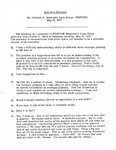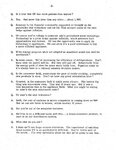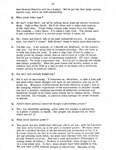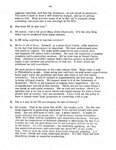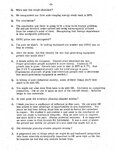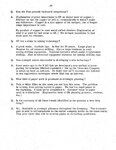| Title |
037_Reed, Charles |
| Creator |
Stewart Library, Weber State University |
| Contributors |
Funded through the generous support of the Edmund W. and Jeannik M. Littlefield Foundation. |
| Description |
This is a myriad of items throughout the UC/UI collection. It includes the minutes of the stockholder's meetings with both Utah International and General Electric, correspondence, a reel-to-reel tape of the merger meeting and the official merger documents. |
| Subject |
Utah International Inc. Notes; General Electric Corporation; Littlefield, Edmund W. (Edmund Wattis), 1914-2001; Jones, Reginald H. (Reginald Harold), 1917-2003 |
| Digital Publisher |
Stewart Library, Weber State University |
| Date Original |
1973; 1974; 1975; 1976; 1977; 1978 |
| Date |
1973; 1974; 1975; 1976; 1977; 1978 |
| Date Digital |
2009 |
| Item Description |
4.25 x 6.5 - 8.5 x 11 in. handwritten or typed on paper |
| Type |
Text |
| Conversion Specifications |
Archived TIFF images were scanned at 400 dpi with an Epson Expression 10000XL scanner. JPG and PDF files were then created for general use. |
| Language |
eng |
| Relation |
http://library.weber.edu/asc/ucc/regindex/documents/Register.pdf |
| Rights |
Materials may be used for non-profit and educational purposes; please credit Special Collections Department, Stewart Library, Weber State University. |
| Source |
MS 100 Box 2b, 23, 44-45, 242, 250, 268 |
| Format |
application/pdf |
| ARK |
ark:/87278/s6ze2vfh |
| Setname |
wsu_ui_ge |
| ID |
43666 |
| Reference URL |
https://digital.weber.edu/ark:/87278/s6ze2vfh |
| Title |
002_page 3 |
| Creator |
Stewart Library, Weber State University |
| Contributors |
Funded through the generous support of the Edmund W. and Jeannik M. Littlefield Foundation. |
| Description |
This is a myriad of items throughout the UC/UI collection. It includes the minutes of the stockholder's meetings with both Utah International and General Electric, correspondence, a reel-to-reel tape of the merger meeting and the official merger documents. |
| Subject |
Utah International Inc. Notes; General Electric Corporation; Littlefield, Edmund W. (Edmund Wattis), 1914-2001; Jones, Reginald H. (Reginald Harold), 1917-2003 |
| Digital Publisher |
Stewart Library, Weber State University |
| Date Original |
1973; 1974; 1975; 1976; 1977; 1978; 1979; 1980; 1981 |
| Date |
1973; 1974; 1975; 1976; 1977; 1978; 1979; 1980; 1981 |
| Date Digital |
2009 |
| Item Description |
4.25 x 6.5 - 8.5 x 11 in. handwritten or typed on paper |
| Type |
Text |
| Conversion Specifications |
Archived TIFF images were scanned at 400 dpi with an Epson Expression 10000XL scanner. JPG and PDF files were then created for general use. |
| Language |
eng |
| Relation |
http://library.weber.edu/asc/ucc/regindex/documents/Register.pdf |
| Rights |
Materials may be used for non-profit and educational purposes; please credit Special Collections Department, Stewart Library, Weber State University. |
| Source |
MS 100 Box 2b, 23, 44-45, 242, 250, 268 |
| Format |
application/pdf |
| Setname |
wsu_ui_ge |
| ID |
43994 |
| Reference URL |
https://digital.weber.edu/ark:/87278/s6ze2vfh/43994 |

